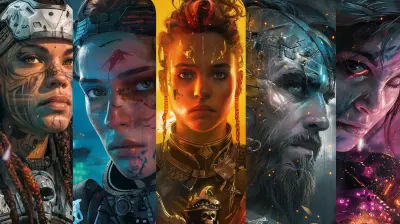Crafting Your Journey: Player Agency in Open World Games
19 June 2025
Open world games have become the playgrounds of imagination for many gamers. Whether you're sneaking through the back alleys of a dystopian city or galloping across sun-drenched plains on horseback, one thing makes it all click—player agency. But what exactly is player agency, and why does it make such a massive difference in how we experience these vast digital worlds?
Let’s dive deep into what makes your choices matter, how developers give you the reins, and why some open world games feel more personal than others.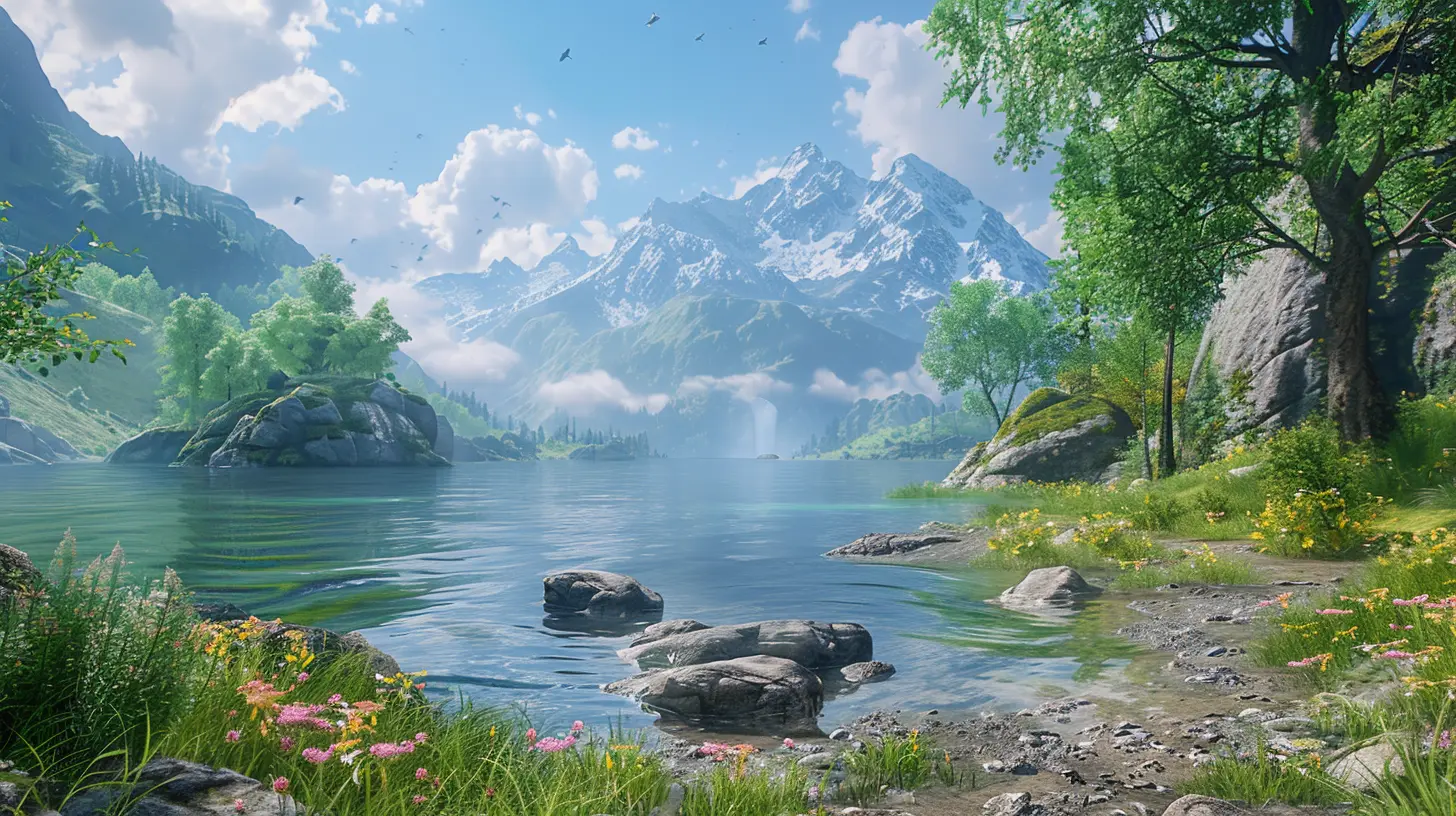
What Is Player Agency?
Player agency is the ability to make meaningful choices that impact your experience in a game. It’s not just "choose A or B" from a menu—it’s about deciding how you approach things, solve problems, and shape the story on your own terms.Think about it: Have you ever played an open world game where you get to decide if you’re the noble hero, a chaotic force, or someone just out for a good time? That’s player agency in action. It doesn’t just let you play a character; it lets you become the character.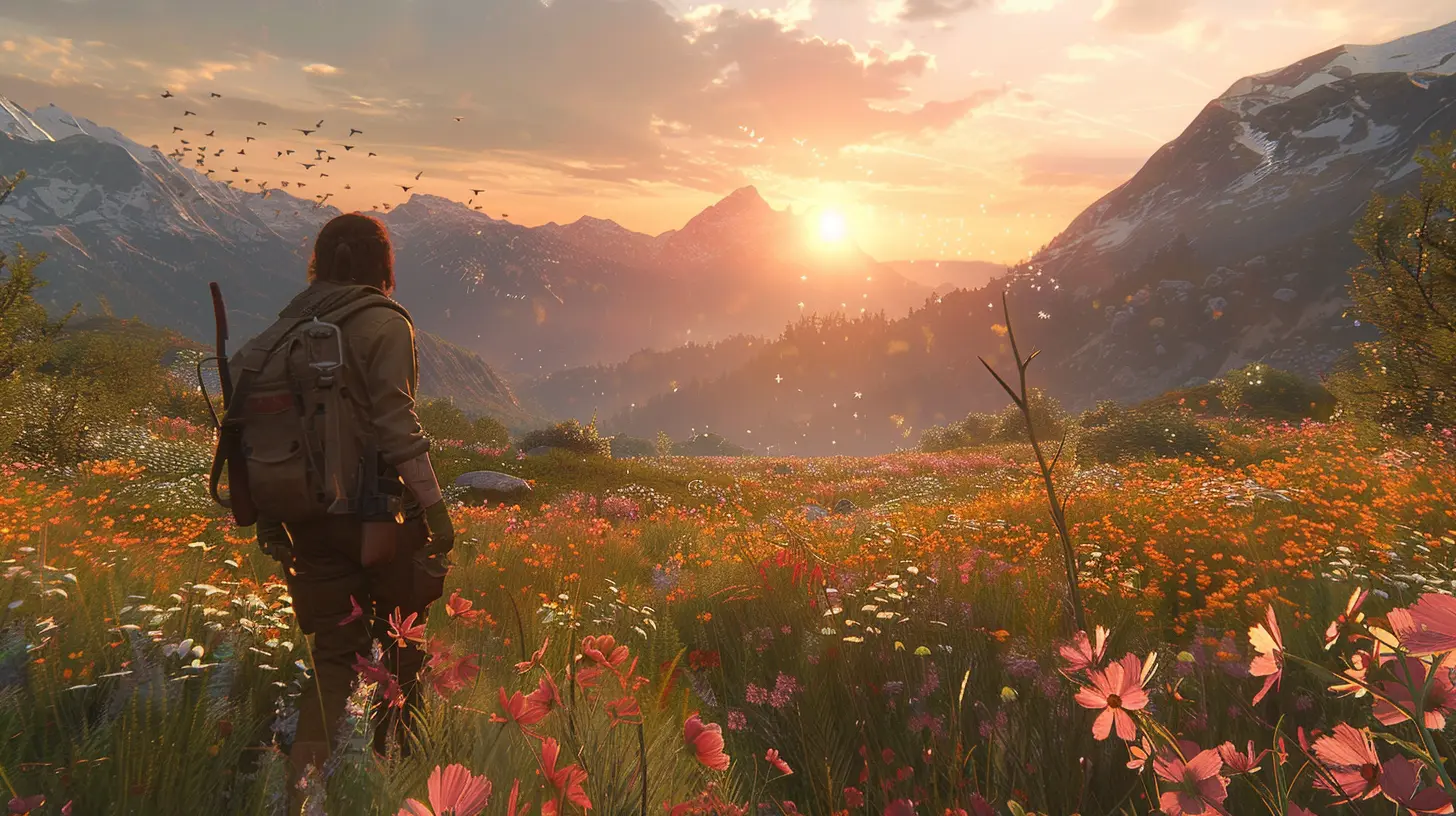
Why Player Agency Matters (A Lot)
Let’s be real—games are all about immersion. When we feel like our choices matter, we’re more invested. It’s the difference between watching a movie and being in one. In open world games, where freedom is a selling point, agency makes or breaks the experience.We don’t want to just run errands in a big sandbox—we want to craft our story, set our pace, and decide who we are. That’s why games with strong player agency are often the ones we remember for years.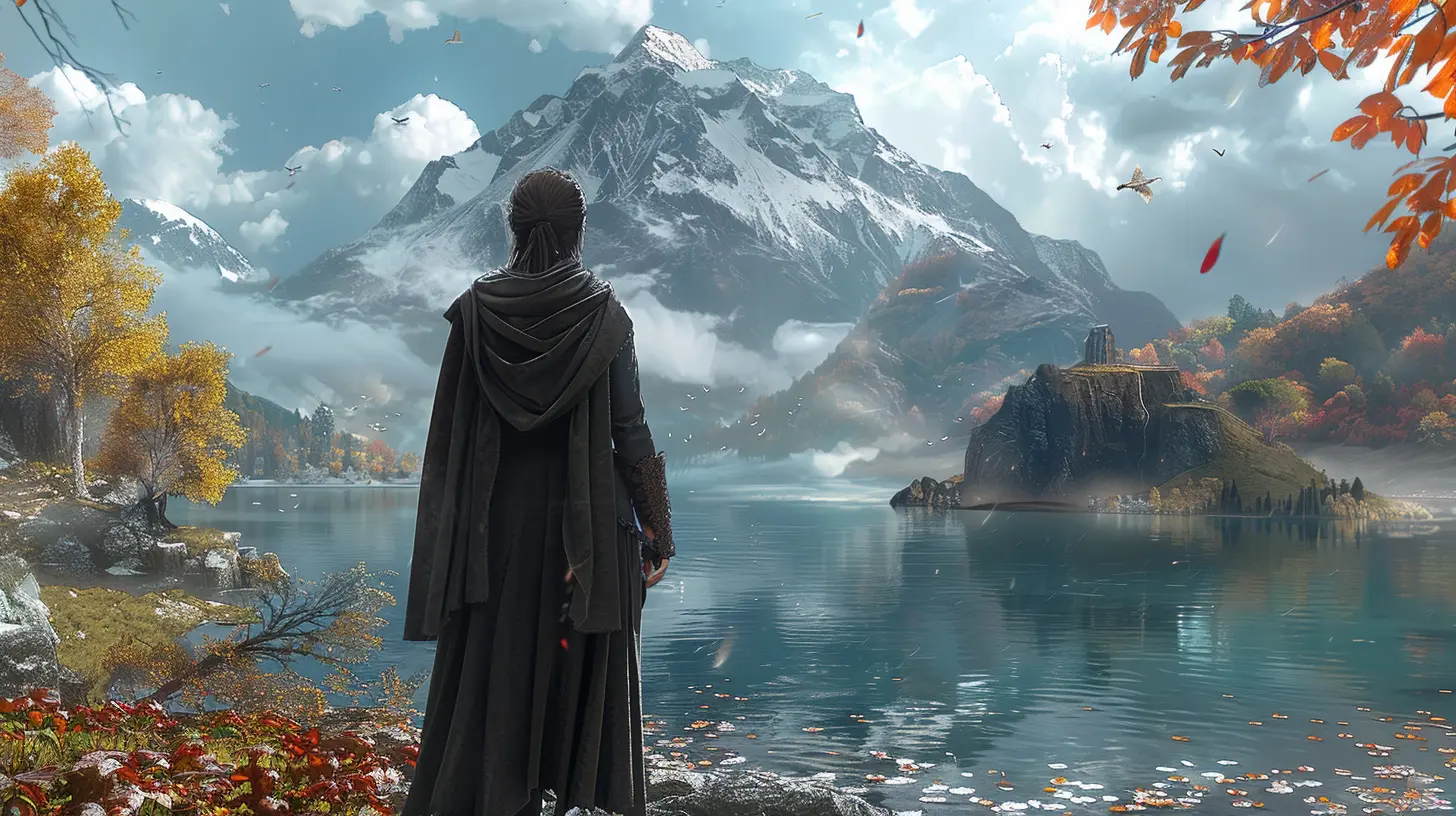
The Evolution of Open World Games and Agency
Back in the day, open world games were pretty basic. Think pixelated landscapes, limited interaction, and storylines as stiff as a wooden sword. But as technology advanced, so did the complexity of the choices we could make.From the early days of GTA III letting us run wild in Liberty City, to modern masterpieces like The Witcher 3 and Elden Ring, developers have learned how to give players more freedom without losing structure. It’s like going from a theme park ride to a choose-your-own-adventure book written in real-time.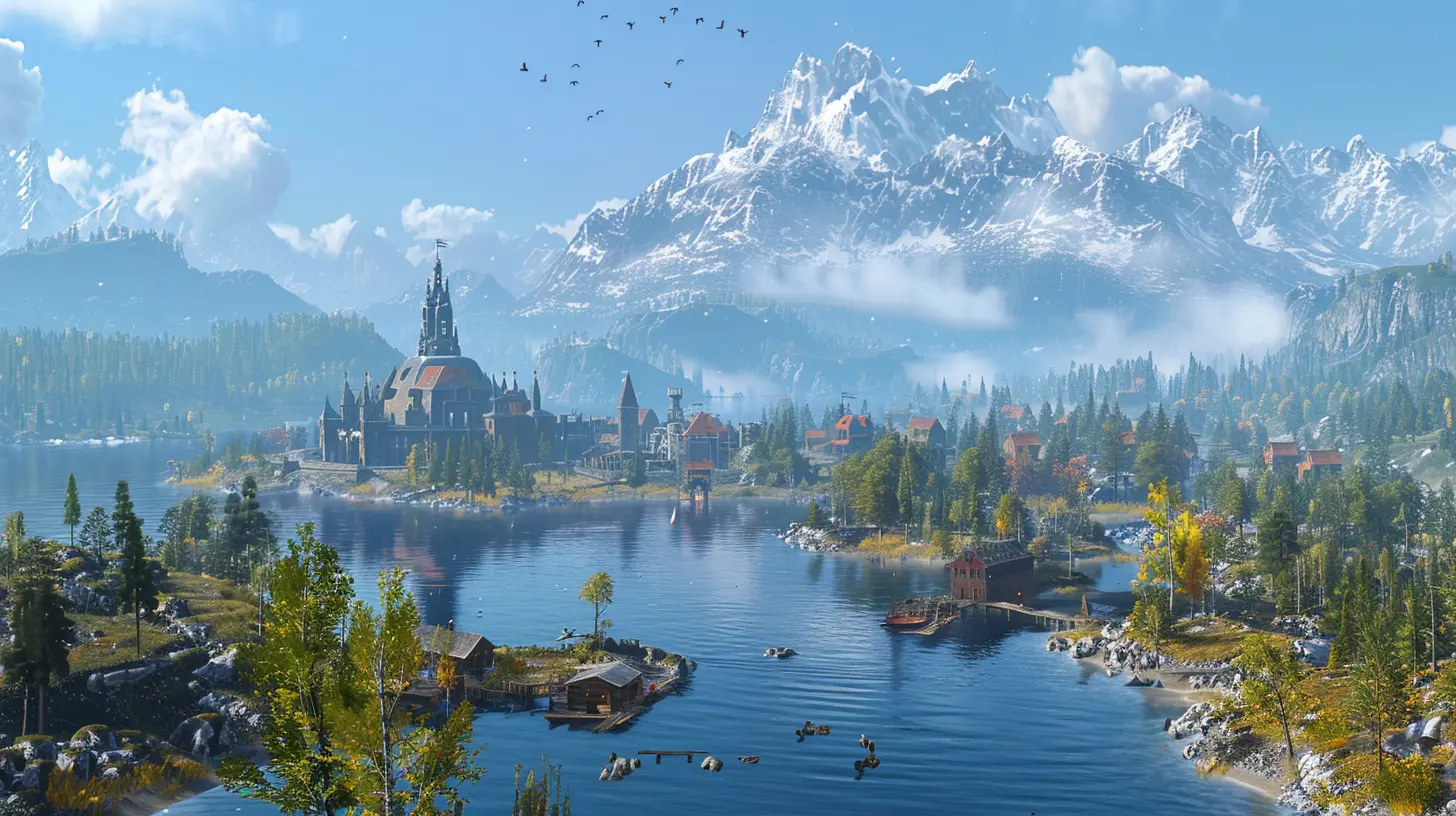
How Developers Create Meaningful Choices
Let’s break it down: crafting compelling player agency isn’t just about giving you a yes-or-no option. It’s about building systems that respond to how you play. Here’s how developers pull it off:1. Branching Narratives
Games like Mass Effect and Fallout don’t just hand you a story—they let you build it. Dialogue choices, alliances, and actions can open up or close off entire chapters. Your version of the story might be totally different from someone else’s. That’s powerful.2. Reactive Worlds
Some games take it a step further. NPCs remember your actions, the world changes based on your decisions, and consequences feel real. In Red Dead Redemption 2, shoot someone in town and you’ll face long-term repercussions. It’s not just mechanics—it’s living, breathing cause and effect.3. Multiple Paths to Success
A good open world game doesn’t care if you’re stealthy, loud, or cunning—it just wants to see how you solve problems. Games like Dishonored or Cyberpunk 2077 reward creativity. Want to sneak through a locked door, hack a terminal, or blow it off the hinges? The choice is yours.4. Roleplaying Freedom
Ever noticed how your character build, dialogue tone, appearance, and even your outfit can shape interactions? That’s intentional. Developers allow this to strengthen the sense that you are truly playing the role, not just watching events unfold.The Illusion of Choice: Agency vs. False Freedom
Let’s get real for a second—not all choices are created equal. Some games give the illusion of choice but funnel you down the same path no matter what. That can be super disappointing.You might get three dialogue options, but if all roads lead to the same outcome, that’s not real agency—it’s window dressing. It’s like being in a buffet line where all the trays lead to the same slice of meatloaf.
Great games avoid this trap by making your choices ripple across the story and gameplay. Even small decisions should feel like they shape your journey.
Player Agency in Action: The Standouts
Let’s take a look at a few games that really nailed player-driven gameplay.The Witcher 3: Wild Hunt
Geralt's world is packed with gray morality and weighty decisions. Every contract, conversation, or combat encounter can lead to consequences later. You're not just following a story—you’re steering it.Skyrim
Few games have matched the sense of freedom Skyrim offers. You can follow the main quest, ignore it entirely, or become a vampire-fighting mage-thief hybrid. The world doesn’t penalize creativity—it encourages it.Breath of the Wild
Nintendo flipped the open world genre on its head. Want to fight Ganon right away? Go for it. Want to spend hours cooking and surfing on shields? Done. The game doesn’t just allow freedom—it’s built around it.Elden Ring
Agency in Elden Ring isn’t in dialogue choices—it’s in exploration and combat. Where do you go? What do you fight? How do you approach obstacles? The game gives you minimal direction and maximum freedom. Every path is valid—even failure.When Player Agency Goes Too Far
Wait… can too much freedom be a bad thing? Yep.Games that are too open, with zero guidance, can feel overwhelming. You boot them up and think, “So… now what?” That’s not freedom—it’s paralysis.
Balance is key. Players want the illusion of total freedom but still need a gentle nudge here and there. Like a DM in D&D who lets you roam but always knows where the story leads, good open world design gives you space without letting you get totally lost.
The Future of Player Agency
We’re heading into exciting times. With AI, procedural generation, and player data shaping games in real time, future titles could offer even more personalized experiences.Imagine a world that learns from how you play. Enemies adapt to your combat style, quests react to your moral alignment, and storylines shift based on tiny choices you didn’t even realize you made. That’s where we’re going.
Game developers are also talking more about accessibility in player agency. It’s not just about choice—it’s about making sure everyone can engage with those choices. That means better UI, deeper character customization, and inclusive storytelling.
Final Thoughts: You’re the Storyteller
At the end of the day, player agency isn’t just a buzzword. It’s the heart of what makes open world games so damn compelling.You want to feel like your time, your decisions, and your risks matter. Whether you’re slaying dragons, modding your spaceship, or romancing an NPC you met in a tavern—when a game lets you own your story, that’s when it becomes unforgettable.
So next time you load up your favorite open world, ask yourself: Am I playing the game… or crafting my journey?
Because if it’s done right, it’s a little bit of both.
all images in this post were generated using AI tools
Category:
Open World GamesAuthor:

Leif Coleman
Discussion
rate this article
2 comments
Kaitlin Barron
Great insights! Player agency truly enhances immersion and creativity in the open world gaming experience.
October 13, 2025 at 5:00 AM

Leif Coleman
Thank you! I’m glad you found the insights valuable. Player agency is indeed key to creating a rich and immersive experience.
Mia Beck
Empowering players enhances immersion and personal storytelling in games.
June 28, 2025 at 4:57 AM

Leif Coleman
Absolutely! Empowering players fosters deeper connections and unique narratives in open world games, making each journey truly personal.


